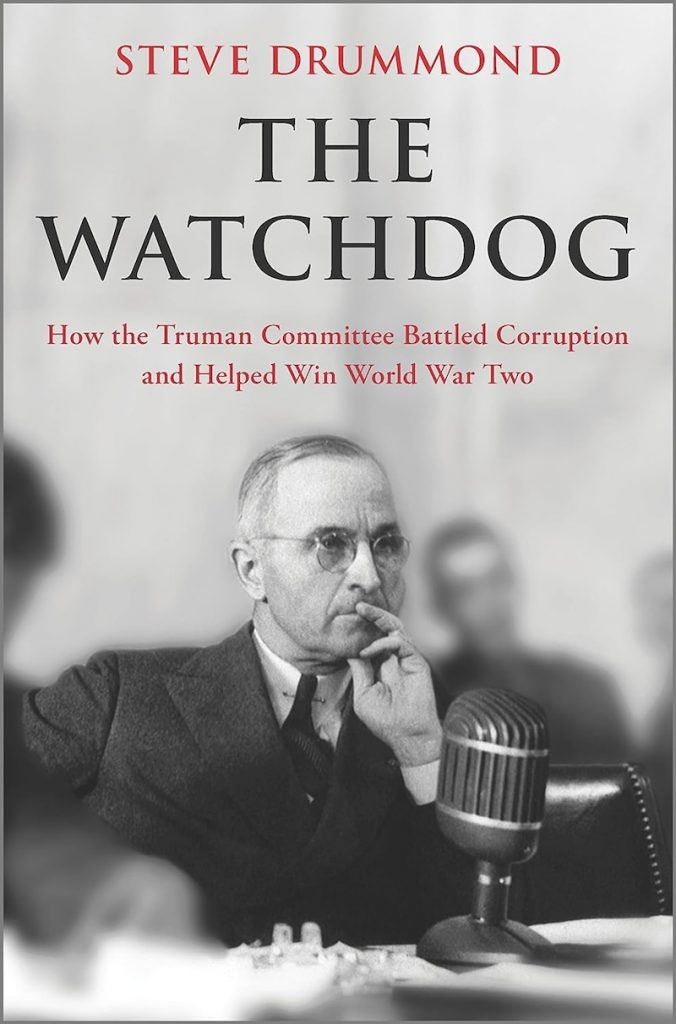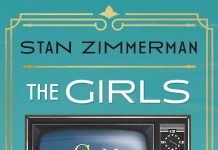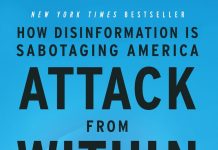
When longtime NPR journalist and educator Steve Drummond appeared at the Michigan Flight Museum in Willow Run Airport on Dec. 4 to talk about his award-winning book, , it was a kind of homecoming.
My grandparents were among the millions of people who moved north  to work in the war plants, says Drummond, who grew up in a blue-collar neighborhood in Wayne and earned three degrees (in journalism and education) from the University of Michigan.
Not coincidentally, the seed for Watchdog was planted locally, too.
Twenty years ago,  I got hooked up with the alumni magazine at Wayne State University, Drummond says. They asked me to write a piece about Detroit during World War II.  I started poking into Willow Run [bomber plant], and its production problems in the early years, and I ran across this reference to something called the Truman committee coming to town to investigate. There was a picture of Truman and some of the other senators getting off the train station in Ann Arbor.  This started me down a 10-year internet rabbit hole.
The Truman committee, formed in 1941, came to life after a then-little-known Missouri junior senator named Harry S. Truman got in his car and drove from the nationÔÇÖs capital to his home state to visit a military camp construction site.
TrumanÔÇÖs constituents had reported that men on the site were sitting around, doing nothing, and thus wasting government funds while the country frantically prepared to enter the war. Truman witnessed this with his own eyes ÔÇö at multiple military camp construction sites across the country ÔÇö and returned to Washington full of rage and determination. With very little seed money ($15,000), he formed a committee that not only investigated the camp sites but went on to expose steel plants that were faking inspection results and factories that were producing slipshod airplane motors during the war.
These investigations catapulted Truman onto the national stage and, in important ways, prepared him for a presidency he never saw coming.
Yet when Drummond zeroed in on this key moment in TrumanÔÇÖs career, he found that little had been published about it.
Its like everyones in a hurry to get to the good stuff  the atom bomb and Roosevelt dying and MacArthur and all that stuff, Drummond says. What I saw was Truman learning on the job.  These investigations were on front pages all over the country.  I was puzzled that nobody [had written a book about it].
For research, Drummond read through countless oral histories ÔÇö from senators, attorneys, and staffers who served on the Truman committee ÔÇö and also gleaned much from TrumanÔÇÖs almost-daily personal correspondence with his wife, Bess, who much preferred life in Missouri to that in D.C.
Im very much a journalist, Drummond says. Im telling a story,  one thats never been told before, and I did it in a journalistic waywhich is to say, I gathered all the facts, I talked to people, and I put it together. Its very different from writing a scholarly history.
This story originally appeared in the December 2024 issue of ║┌┴¤═° Detroit magazine. To read more, pick up a copy of ║┌┴¤═° Detroit at a local retail outlet. Our will be available on Dec. 9.
|
| ╠² |
|








